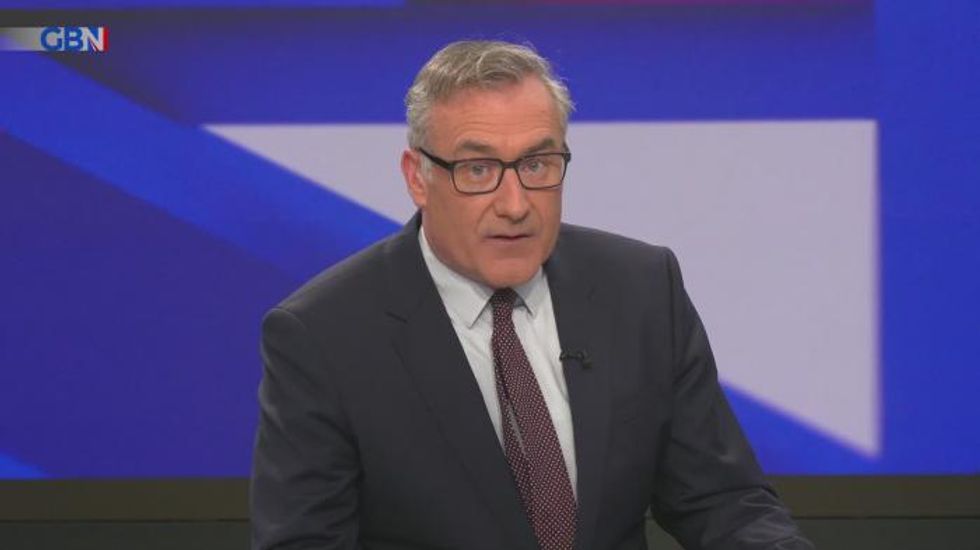Don't Miss
Most Read
Trending on GB News
My late-wife, Joanna – Jo to her family and friends - died of breast cancer three and a half years ago. There was, probably, nothing we could have done to halt the inexorable progress of a disease which, in killing her, deprived our six young children of a mother.
But I wouldn’t be human, if I haven’t occasionally wondered if she might still be with us, had the NHS not dropped the ball. Jo’s diagnosis came late in the life of her tumour. It might have been detected sooner, had her routine check-up appointment materialised when it ought to have.
As anyone who’s life has been touched by cancer will know – the chances of survival improve sharply if the thing is caught early.I don’t especially blame the NHS for what happened. It employs many well-meaning and brilliant practitioners.
And her cancer was so virulent that I’m not really sure any medical intervention, however early, could’ve saved her life. But it does mean I paid particular attention to those headlines this morning about the effect of Covid Plan B on cancer referrals.
The Daily Telegraph, for instance, reporting today that 5000 cancers a month could be missed because our GPs are being told to axe routine appointments to make way for covid jabs.
Those jabs are important. We keep being told to expect a tsunami of infections. And, as someone who’s had his booster, I’m supportive of almost any plan – so long as it’s not compulsory - that involves inoculating as many of us as possible.
But we must avoid creating a situation where more people ultimately die of cancer than do of new covid variants. We’re told that’s not likely to happen. And yet we are entitled to wonder if those who decide where clinical priorities lie, sometimes see the bigger picture.
Think of the attention given this week to the solitary British fatality attributed to omicron. And remember that each day in this country there are more than 400 deaths caused by cancer.It’s not clear how many more cancer deaths are happening because of covid.
It’s certainly reasonable to assume there’s been a significant rise. All those missed appointments, yes. But also the abandoned treatments; the chemotherapy and radiotherapy courses that never got off the ground during lockdown and only recommenced when it was too late. But also things like cancer drug trials.
When Jo was terminally ill, we looked desperately around at what was in the experimental pipeline. There was nothing that fitted her type of cancer. But other patients did and do get lucky. But when covid came along these opportunities for a few extra months of life, or sometimes a miraculous reprieve, never left the laboratory.
So, for instance, in the first year of the pandemic 40,000 cancer patients were denied the chance to go on drug trials. Only a third of those who normally roll the dice like this, did so that year. So, I’ll ask again, what has been the impact of covid on cancer?
How many more of us will die, have died already or are dying right now oblivious to the fact, because coronavirus has effectively sucked all the medical oxygen from the treatment room. Well, if we take the cancer that killed my late wife, we know from charities that almost a million British women missed a breast cancer screening in the first wave alone.
American data suggested that at the height of the pandemic the number of mammograms in the US fell by 80 per cent. We will never know, definitively, how many lives have been and will be cut short by the effect of the covid emergency on cancer treatment.
Lives that would have been prolonged, had the virus not hoovered-up the resources that normally go elsewhere. It’s certainly true that the NHS has been making progress catching-up with its backlog. But with every fresh interruption, that process goes backwards.
If the events of this week tell us anything; it’s this. Every new variant which now comes along, and shows signs of running rampant, will be the cause of a massive institutional seizure for the NHS.
A triaging decision that will lead to the prioritisation of covid, the renewed sidelining of oncology, and the premature deaths of women who would – in normal times – be around to see their children grow up.











